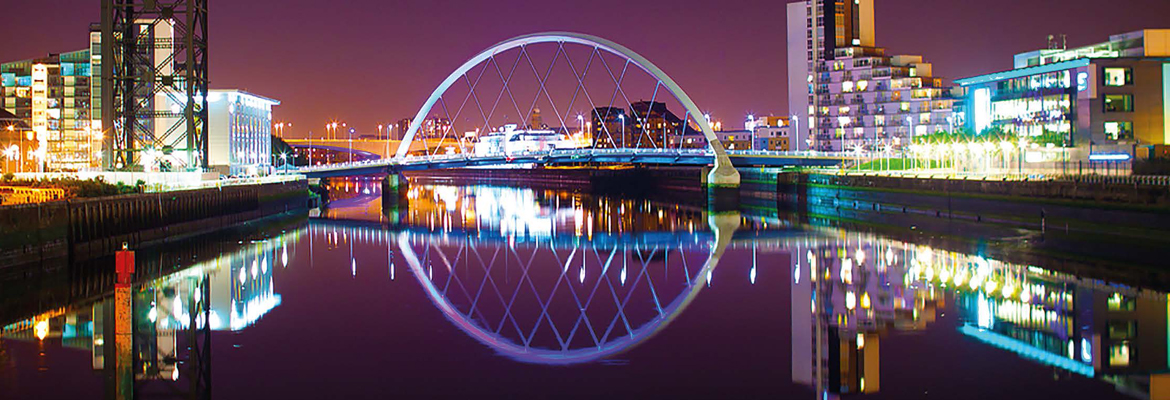Glasgow’s vision is to become one of the world’s first circular cities. In 2015, it took its first steps towards creating a stronger more sustainable economy by pioneering a complete Circular Economy Scan. Commissioned through a partnership led by Glasgow Chamber of Commerce with global experts such as Circle Economy from the Netherlands, Zero Waste Scotland and Glasgow City Council, the scan showed that adopting circularity can help create jobs, increase resource efficiency and reduce CO2 emissions throughout the city.
By analysing Glasgow’s economic and political landscape and by mapping the city’s resource flows from consumption to waste, the scan identified leading industries through which the city’s economy can become more “circular.” The study also brought into focus ways in which the Chamber could directly support local organisations in adopting circular models; including new collaborations, market opportunities, significant financial savings and generating increased profits.
The manufacturing sector was highlighted as having the greatest circular potential, with the initial phase of work focusing around the food and drink sector. As a result, a number of practical and scalable pilot studies were identified, including the creation of a new local beer made from left-over morning bread rolls. Aulds Bakers bakery supplies its bread to retailers on a sell or return basis. Therefore, surplus bread is then passed on to Jaw Brew brewery in a new partnership, thus ensuring any excess bread is reused.
Following recognition from the World Economic Forum for its initial phase of work, Glasgow Chamber of Commerce is now working directly with local businesses across all sectors in the city, supporting the adoption of their own circular ambitions. Whether organisations are just starting their journey to circularity or already have circular processes in place, Circular Glasgow’s suite of programmes and tools have been tailored to facilitate each organisation in implementing their own ideas and plans. No matter which sector, the range of support tools offers businesses endless possibilities in terms of integrating circularity into their day-to-day work practices.
Alison McRae, Senior Director at Glasgow Chamber of Commerce, says: “Since 2015, we’ve seen many local businesses adopting practical circular business models including technological innovation and designing for the future. Recycling and repurposing of materials is only part of the equation for businesses.
It is without question that a key to the city’s success so far has been a coalition of the willing through our robust partnerships.’’
Not only has this new way of thinking inspired local businesses, it has also played a strong role in engaging key stakeholders at an urban level by exploring practical circular economy related policies as a priority and objective for the future.
Glasgow sees this new approach – moving from a linear economy to a circular economy – as a solution with which to create improved product quality, economic growth, jobs, and ultimately a future proof, more resilient and inclusive city. The city’s desire to transform the Circle City Scan results into tangible and practical outcomes highlights its frontrunner status, leadership and vision, and serves as an example for other cities around the world.
Circular Glasgow, www.circular glasgow.com


